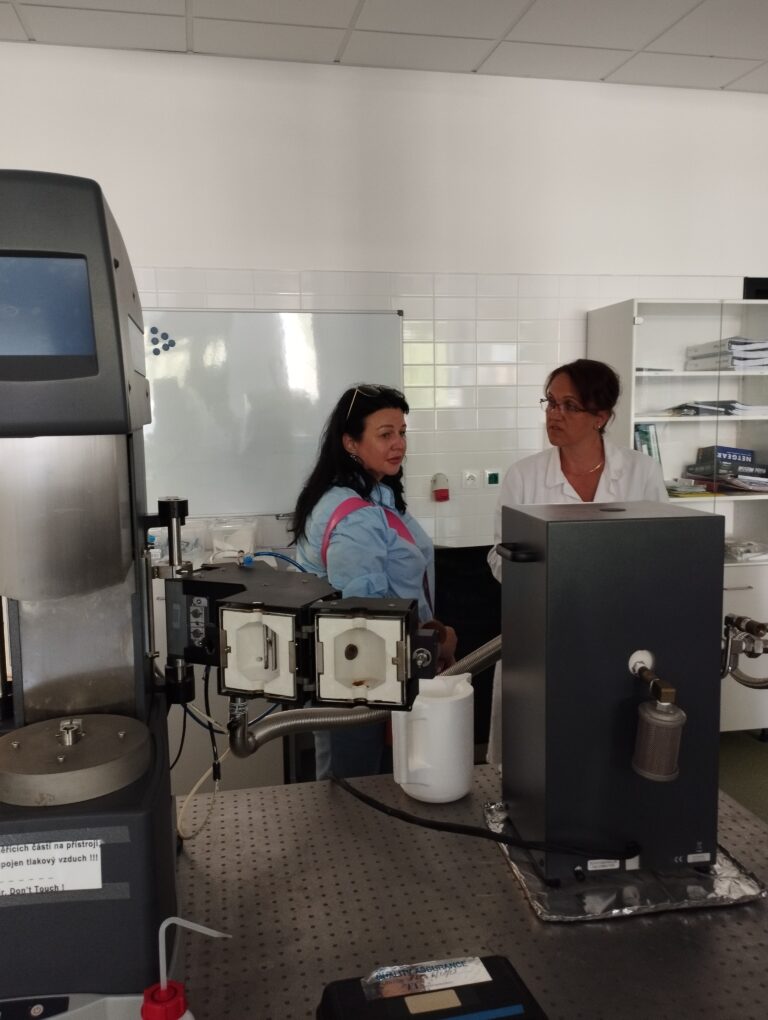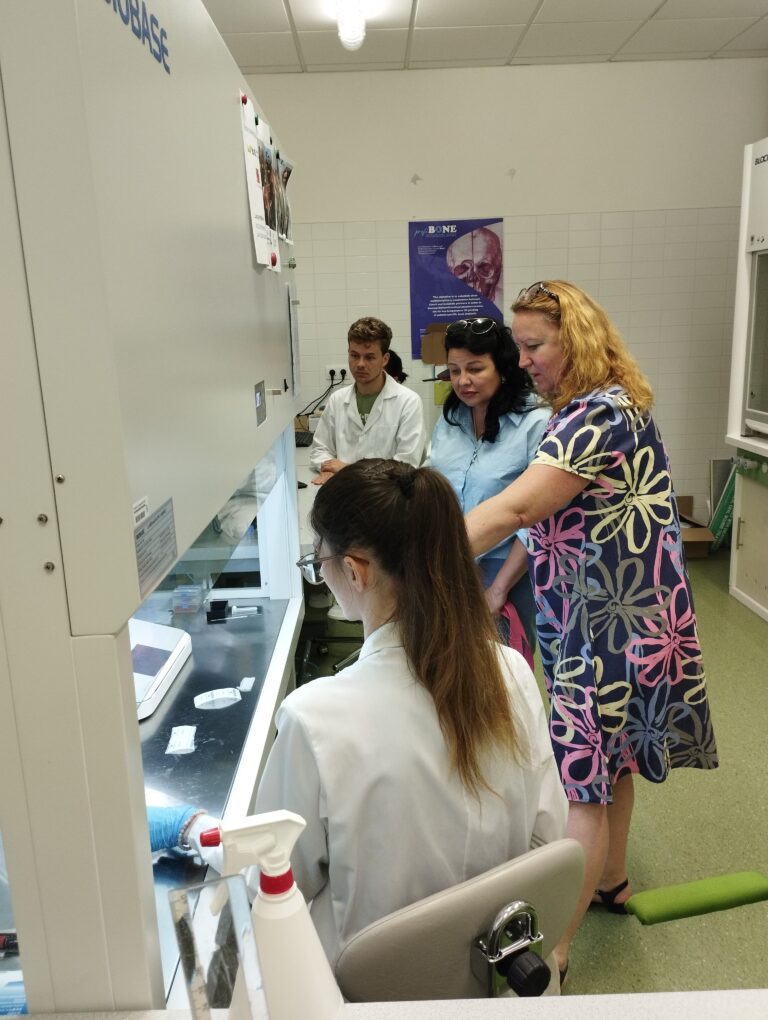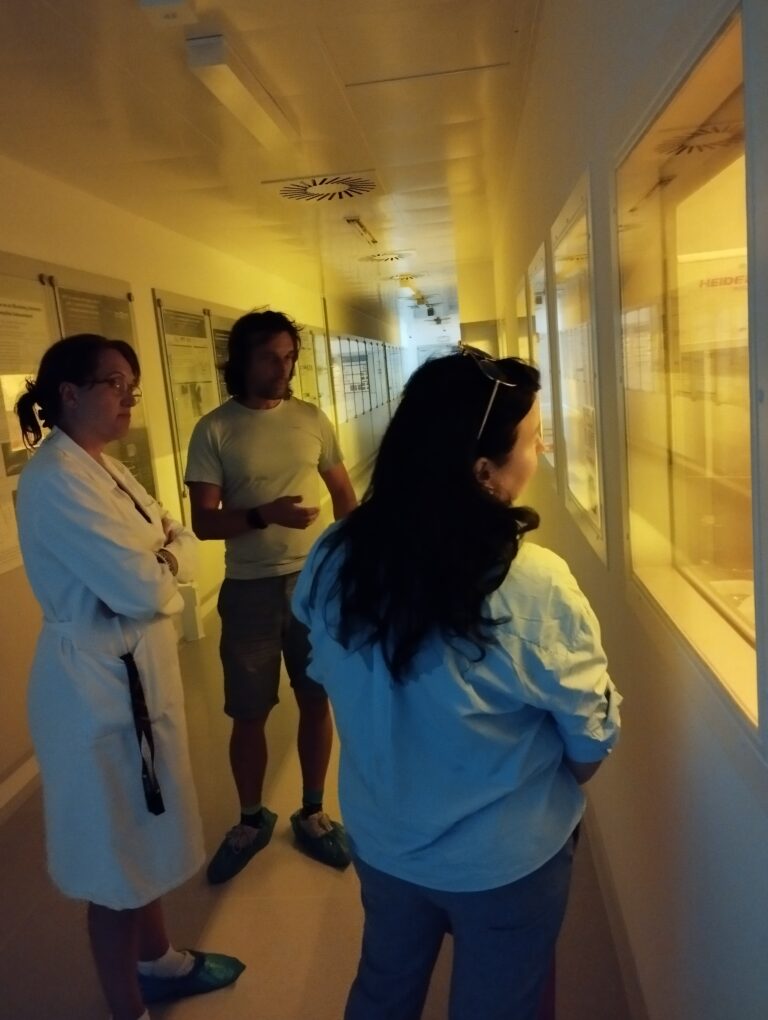July 8, 2024 – Kick-off meeting of the project
«Improving the monitoring of the state of agricultural land affected by military operations» (G6296)
in the Brno University of Technology
This project was announced as part of NATO’s “Science for Peace and Security Programme” (SPS).
On July 8-9, 2024, the meeting was held in a combined format, in on-line and off-line modes.
From the organizers of the competition, the meeting was attended by Mr. Richard Brewin and Mrs. Klavdija Roepke on on-line terms.
All participants from the team of the Faculty of Chemistry of the Brno University of Technology directly took part in the meeting.
Lyudmila Vasylenko and Viktor Sych came to Brno from the team of the Association “Association of Innovation Laboratories”. Mykhailo Ksenofontov took part in the meeting online.
Mr. Richard Brewin and Mrs. Klavdija Roepke congratulated the participants of the meeting on behalf of the NATO Science for Peace and Security Programme, emphasized the honor of the participation of the Czech-Ukrainian consortium team in the implementation of this international project.
Speech by Mr. Richard Brewin touched upon NATO’s role in the world as a guarantor of security and stability, the organization’s experience in solving certain world problems, and the peculiarities of the Science for Peace and Security Programme (SPS): its priorities, mechanisms, and conditions of participation. Mrs. Klavdija Roepke drew the attention of the Czech-Ukrainian consortium participants to the organizational requirements for the implementation of the project and the responsibility of the consortium members for its proper implementation, in particular regarding the timely and high-quality implementation of the project program and compliance with the requirements for the procedure for drawing up documents for each of the four stages of the project.
From the organizers of the kick-off meeting, the participants of the meeting were congratulated by Miloslav Pekař and Eva Maršalová.


Professor Miloslav Pekař, the NATO country Project Director (NPD), opened the kick-off meeting and welcomed all participants. He introduced the individual members of the BUT research team, and after the introductory speech, he gave a short presentation summarizing the main objectives of the project and highlighting the possibilities for mutual cooperation in the testing of agricultural soil samples. He stressed the danger of damage to agricultural land as a result of the war, as it threatens food supply needs in the current and long term. He described the progress made by the Czech research team in the analysis of soil organic matter. Lastly, he reiterated the importance of international cooperation in the field of research and expressed his gratitude for the opportunity to work on the NATO supported project.Professor Miloslav Pekař, the NATO country Project Director (NPD), opened the kick-off meeting and welcomed all participants. He introduced the individual members of the BUT research team, and after the introductory speech, he gave a short presentation summarizing the main objectives of the project and highlighting the possibilities for mutual cooperation in the testing of agricultural soil samples. He stressed the danger of damage to agricultural land as a result of the war, as it threatens food supply needs in the current and long term. He described the progress made by the Czech research team in the analysis of soil organic matter. Lastly, he reiterated the importance of international cooperation in the field of research and expressed his gratitude for the opportunity to work on the NATO supported project.
Eva Maršalová, MSc., the project manager, spoke about the administrative aspects of the project, the conditions for successful delivery of the promised outcomes, as well as the responsibilities of individual consortium members for its proper implementation. She emphasized the importance of combining the efforts of representatives of different segments of society from different countries to restore the Ukrainian lands affected by the war. She focused on the organizational components of project implementation and timely documentation at all project stages. She outlined the steps that will lead to the achievement of the first milestones and, together with representatives of the NATO SPS Office, discussed in more details the questions that arose regarding the implementation and the financial aspects of the project.
Ph.D. Mykhailo Ksenofontov, Partner country Project Director (PPD), underlined the severity of the problem of damage to agricultural land from hostilities and the importance of NATO’s efforts to support initiatives to establish more effective monitoring of these processes and organize measures to restore damaged agricultural land. This will guarantee the solution of the problem of food supply to the population of Ukraine and other countries, since Ukraine is an active exporter of agricultural products.
Ph.D. Lyudmila Vasylenko, president of the Association «Association of Innovation Laboratories», noted the honor for the Ukrainian side of participation in the NATO project, which will provide an opportunity to exchange experience in monitoring and restoring the state of agricultural lands damaged as a result of hostilities with international partners. She emphasized the importance of NATO’s support for innovative approaches to the implementation of the project, which on the part of the Ukrainian side will be based on the qualitative improvement of laboratory research and the preparation of recommendations based on the purchase of a more productive laboratory complex the Robotic analyzer SP2000-3 for determining the clay fraction of soil manufactured by Skalar (according to Robinson-Kohn, ISO 11277). This will allow the research to cover a larger area of affected agricultural land and obtain more accurate test results and more effectively contribute to the restoration of affected agricultural land.
Doctor Viktor Sych, technical expert of AIL, focused on the components of project implementation and the importance of NATO’s organizational support for program activities of the Ukrainian team working in wartime.
On July 9, 2024, Professor Miloslav Pekař, Eva Maršalová and Ph.D. Lyudmila Vasylenko met in the Brno University of Technology. Representatives of the Czech side acquainted Lyudmila Vasylenko with their technological capabilities for the implementation of the project program.
The programme of the meeting included a visit to the Central European Institute of Technology (CEITEC), a multidisciplinary research centre with cutting-edge technologies. Within CEITEC, a number of laboratories were built with instrumentation and facilities. Since 2016, it forms a key component of research infrastructure for basic and applied research in advanced nanotechnology, micro-technology and advanced materials.
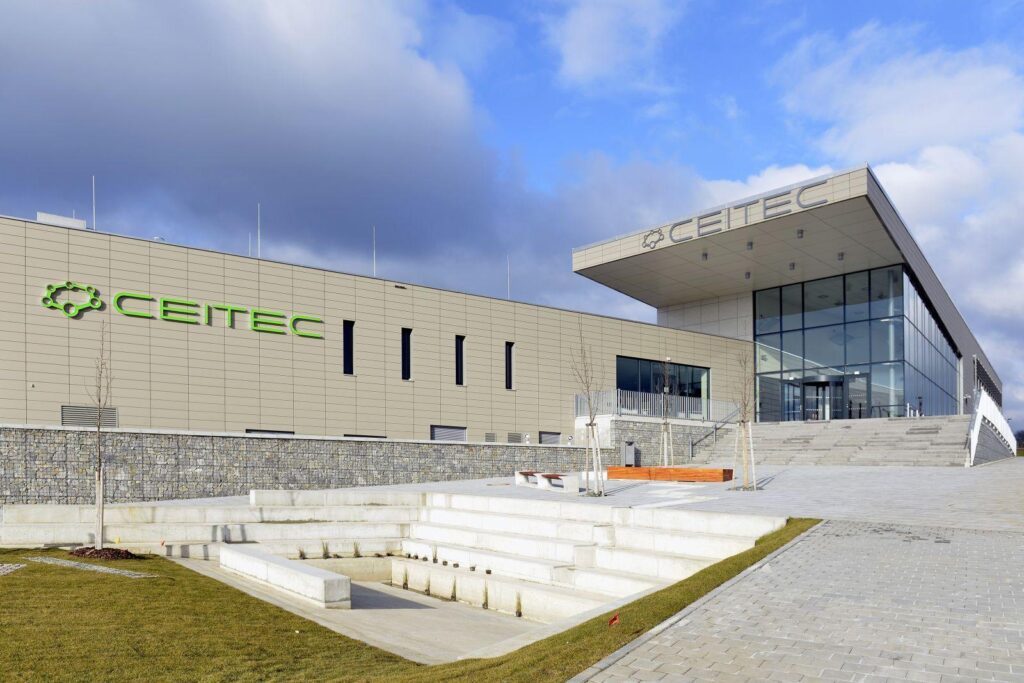
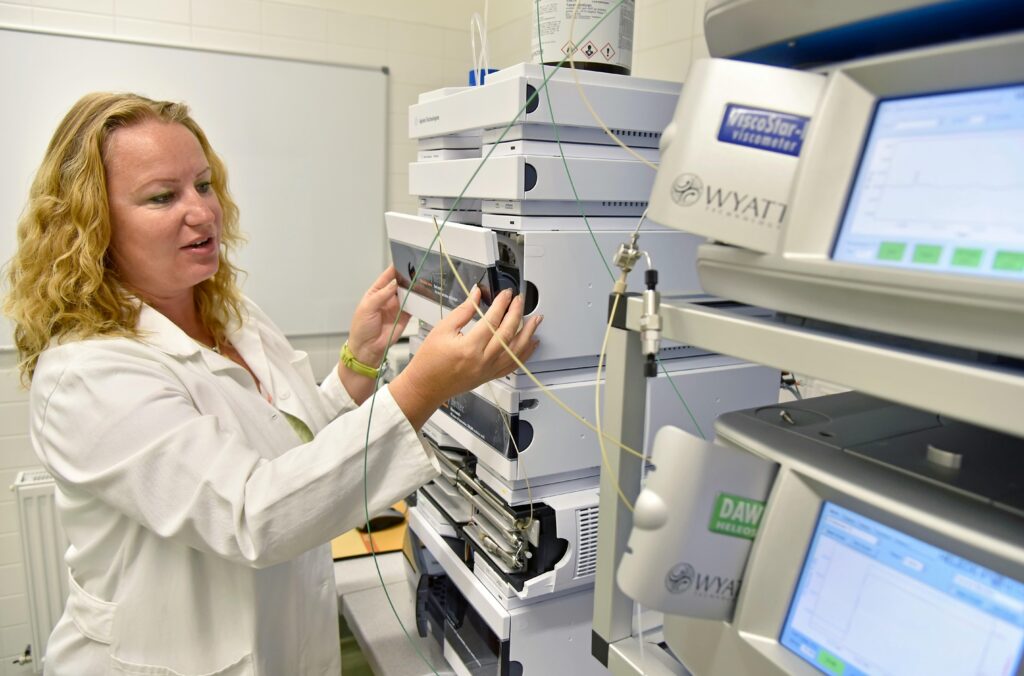
At CEITEC, Eva Maršalová and Lyudmila Vasylenko met with Associate Professor Lucy Vojtova, a research group leader of Advanced biomaterials group at CEITEC BUT and a Head of Advanced polymer synthesis and Biomaterial’s laboratories. She is a specialist in the development of new “smart” biopolymeric scaffolds for soft- and hard- tissues including skin and bone regeneration via tissue engineering methods. Lucy Vojtova talked about her participation in projects supported by the US National Science Foundation and Czechia Agencies, all focused on advanced biopolymers, and showed the visitors various research laboratories and instruments.

